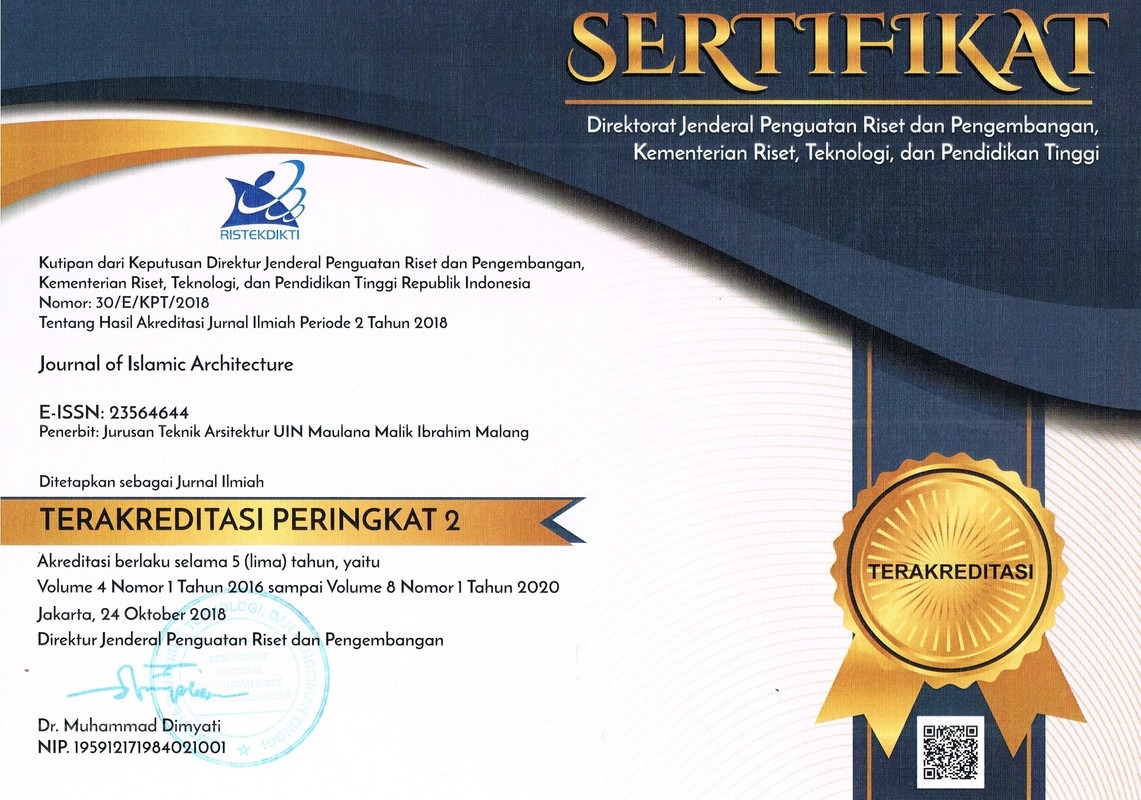SULTAN HASSAN MOSQUE: AN ISLAMIC ARCHITECTURAL WONDER ANALYTICAL STUDY OF DESIGN AND ITS EFFECT ON ISLAMIC CAIRO
Abstract
Cities in 21st century are losing identity due to globalization and rapid urbanism. However, great architectural buildings like Sultan Hassan Mosque Complex show us that great architectural wonders can keep this identity and can affect positively in society’s life. The simple aim of this study is to investigate the relationship between architectural features and Islamic meanings in modern world through studying the past. The study is mainly based on two main sources of data, literature review regarding historical part and site visit dealing with discussion of architectural features, uses and effect on surroundings society. Based on these sources, analysis was made based on matrix relationship between two sets of criteria, architectural parts (design, usage, location, artistic features), and mosque significance in Islam (prayer house, community center, center of knowledge, meeting place for shoura). Findings proved the existence of consequent relationship between Islam and architecture, as Islamic principles affect the design of the mosque in religious, social, and service aspects. Alternatively, architectural building satisfies all Muslim needs. This dual effect situation shapes recommend-dations like enhancement of the multidimensional use of the mosque, strengthen the community service role of the mosque, and developing design of modern mosques to fulfill Muslim requirements with 21st century measures and also endorse Islamic values through architecture.
Keywords
DOI: https://doi.org/10.18860/jia.v1i2.1725
Refbacks
- There are currently no refbacks.






